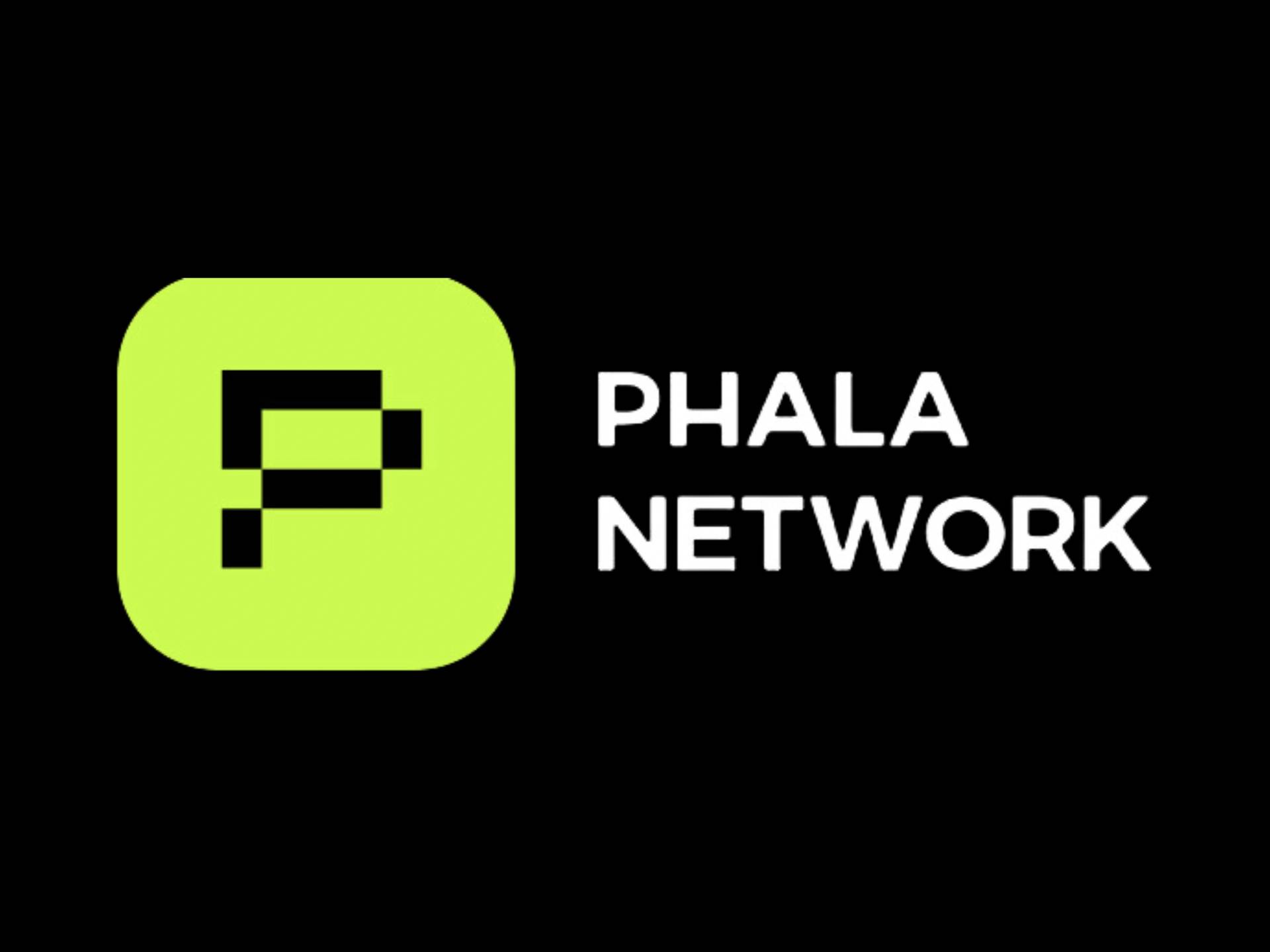위키 구독하기
Share wiki
Bookmark
Phala Network
0%
Phala Network
Phala Network는 블록체인 기술을 기반으로 구축된 분산형 클라우드 컴퓨팅 플랫폼으로, Web3 애플리케이션을 위한 안전하고 확장 가능한 컴퓨팅을 용이하게 하도록 설계되었으며 PHA 암호화폐로 구동됩니다. 이는 신뢰 실행 환경(TEE)과 블록체인 인프라를 결합하여 개인 정보 보호 및 신뢰 없는 컴퓨팅을 가능하게 하여 기존 중앙 집중식 클라우드 서비스의 한계를 해결합니다. [1] [5]
개요
Phala Network는 블록체인과 보안 하드웨어를 통합하여 개인 정보 보호에 중점을 둔 생태계를 구축하는 분산형 컴퓨팅 플랫폼으로 기능합니다. 이는 이더리움 및 폴카닷 생태계 내에서 작동하여 상호 운용성 및 확장성 기능을 활용합니다. 이 네트워크는 탈중앙화 금융 (DeFi), 데이터 분석, 인공 지능(AI) 및 기밀 스마트 계약을 포함한 다양한 애플리케이션을 지원합니다.
이 플랫폼의 아키텍처는 코드 실행 및 데이터 스토리지를 격리하는 프로세서 내의 보안 엔클레이브인 TEE에 의존합니다. TEE를 블록체인과 결합함으로써 Phala Network는 개발자가 민감한 데이터를 공개 블록체인에 노출하지 않고 처리할 수 있도록 하여 투명성과 기밀성을 모두 보장합니다. [1] [5]
역사
Phala Network는 2018년에 블록체인 및 암호화 전문 팀에 의해 설립되었습니다. 이 프로젝트는 탈중앙화 애플리케이션에서 개인 정보 보호 및 확장성에 대한 수요 증가에 대응하여 개발되었습니다. 2020년에 Phala Network는 테스트넷을 출시했으며, 2021년에는 메인넷 릴리스가 이어졌습니다.
2021년에 Phala Network는 경매를 통해 폴카닷 네트워크에서 파라체인 슬롯을 확보하여 더 넓은 폴카닷 생태계와의 원활한 통합을 가능하게 했습니다. 이 이정표는 네트워크 개발의 핵심 단계로, 다른 블록체인 프로젝트와의 추가적인 생태계 확장 및 파트너십으로 이어졌습니다. [1] [5]
기술
Phala Network의 기술 프레임워크는 세 가지 주요 구성 요소를 기반으로 합니다.
- 신뢰 실행 환경(TEE): TEE는 코드 실행 및 데이터 스토리지를 격리하여 민감한 정보의 개인 정보 보호 및 무결성을 보장하는 프로세서 내의 보안 영역입니다. Phala Network는 TEE를 활용하여 분산형 컴퓨팅을 위한 보안 환경을 조성하여 애플리케이션이 기밀 데이터를 공개 블록체인에 노출하지 않고 처리할 수 있도록 합니다.2. Substrate 프레임워크: Phala Network는 폴카닷 생태계 내에서 사용자 지정 블록체인을 개발하기 위한 모듈식 툴킷인 Substrate 프레임워크를 사용하여 구축되었습니다. Substrate를 통해 Phala Network는 다른 폴카닷 기반 프로젝트와의 호환성을 유지하면서 고유한 기능을 구현할 수 있습니다.3. Phat 계약: Phala Network는 TEE 내에서 오프체인으로 작동하는 스마트 계약 유형인 Phat 계약을 도입합니다. 기존 스마트 계약과 달리 Phat 계약은 외부 데이터 소스(오라클)와 상호 작용하고 개인 정보 보호 및 확장성을 유지하면서 복잡한 계산을 수행할 수 있습니다.4. 크로스체인 상호 운용성: 폴카닷 생태계의 일부로서 Phala Network는 크로스체인 상호 운용성의 이점을 누려 서로 다른 블록체인 간의 원활한 통신 및 데이터 전송을 가능하게 합니다. 이 기능은 광범위한 탈중앙화 애플리케이션 및 서비스와의 통합을 용이하게 합니다.
Phala Network 토큰(PHA)
Phala Network의 기본 암호화폐인 PHA는 생태계 내에서 여러 기능을 수행합니다.
스테이킹
PHA 토큰은 네트워크 참가자가 네트워크를 보호하고 보상을 받기 위해 스테이킹할 수 있습니다. 스테이커는 네트워크의 합의 메커니즘 및 전반적인 보안에 기여합니다.
거버넌스
PHA 보유자는 Phala Network의 개발 및 운영과 관련된 제안에 투표하여 네트워크 거버넌스에 참여할 수 있습니다.
거래 수수료
PHA는 Phat 계약 실행을 포함하여 네트워크의 거래 수수료 및 컴퓨팅 리소스 비용을 지불하는 데 사용됩니다.
인센티브
PHA 토큰은 노드 운영자, 개발자 및 커뮤니티 구성원과 같이 네트워크에 기여하는 참가자에게 인센티브로 배포됩니다.
PHA의 총 공급량은 10억 개의 토큰으로 제한되며 생태계 개발, 팀 인센티브 및 커뮤니티 보상에 할당됩니다. 이 토큰은 바이낸스, MEXC, OKX 등과 같은 다양한 암호화폐 거래소에서 거래할 수 있습니다. [1] [2] [3] [4] [6] [7] [10]
생태계 및 파트너십
Phala Network는 성장하는 탈중앙화 애플리케이션 (dApp) 생태계를 개발하고 다양한 블록체인 프로젝트와 파트너십을 구축했습니다. 주요 협력은 다음과 같습니다.
- DeFi 통합: Phala Network는 기밀 대출 및 차입과 같은 개인 정보 보호 금융 서비스를 가능하게 하기 위해 DeFi 플랫폼과 제휴했습니다.
- AI 및 데이터 분석: 이 네트워크는 안전하고 확장 가능한 컴퓨팅이 필요한 AI 및 데이터 분석 애플리케이션을 지원하여 기업이 개인 정보를 침해하지 않고 민감한 데이터를 처리할 수 있도록 합니다.
- 크로스체인 협업: Phala Network는 크로스체인 상호 운용성을 강화하고 다양한 블록체인 생태계에서 사용 사례를 확장하기 위해 파트너십을 형성했습니다. [1] [2] [8] [9]
커뮤니티 및 개발
Phala Network는 GitHub에서 사용할 수 있는 코드베이스를 통해 오픈 소스 개발 모델을 유지합니다. 이 프로젝트에는 개발 및 거버넌스에 참여하는 개발자, 기여자 및 애호가로 구성된 활성 커뮤니티가 있습니다.
이 네트워크는 기술, 토큰노믹스 및 개발 로드맵에 대한 포괄적인 문서를 제공합니다. 정기적인 업데이트는 블로그 및 Twitter 및 CoinMarketCap과 같은 소셜 미디어 플랫폼을 포함한 공식 채널을 통해 공유됩니다.
향후 개발
Phala Network는 기술 발전과 생태계 성장에 계속 집중하고 있습니다. 계획된 개발은 다음과 같습니다.
- 향상된 TEE 통합: 성능 및 보안을 개선하기 위한 TEE 기술의 추가 최적화.
- Phat 계약 확장: 보다 복잡하고 개인 정보 보호 애플리케이션을 지원하기 위한 Phat 계약의 새로운 기능 및 사용 사례 도입.
- 생태계 성장: Phala Network 생태계에 추가 개발자, 프로젝트 및 파트너를 온보딩하기 위한 노력.
- 크로스체인 확장: 다른 블록체인 네트워크와의 원활한 통합을 가능하게 하기 위한 크로스체인 상호 운용성 강화.
Phala Network는 블록체인 기술과 보안 하드웨어를 결합하여 개인 정보 보호 및 확장 가능한 컴퓨팅을 가능하게 하는 분산형 클라우드 컴퓨팅 플랫폼입니다. TEE, Phat 계약 및 크로스체인 상호 운용성을 통해 Phala Network는 광범위한 Web3 애플리케이션을 지원하여 블록체인 공간에서 안전하고 분산된 컴퓨팅에 대한 요구 사항을 해결합니다. [1] [2] [3] [8] [9]
잘못된 내용이 있나요?
